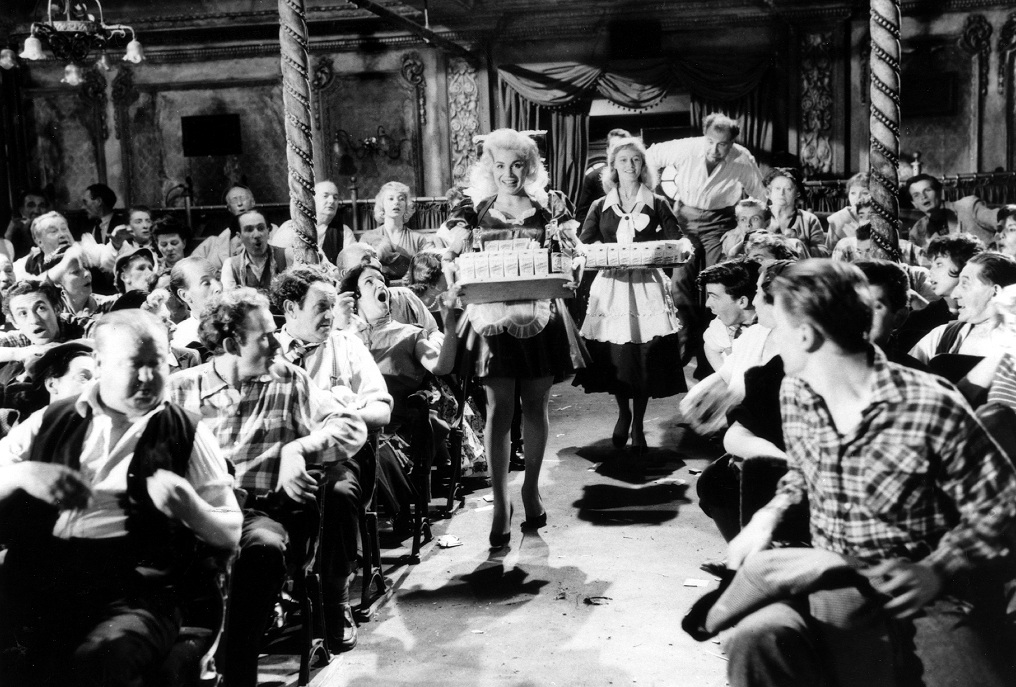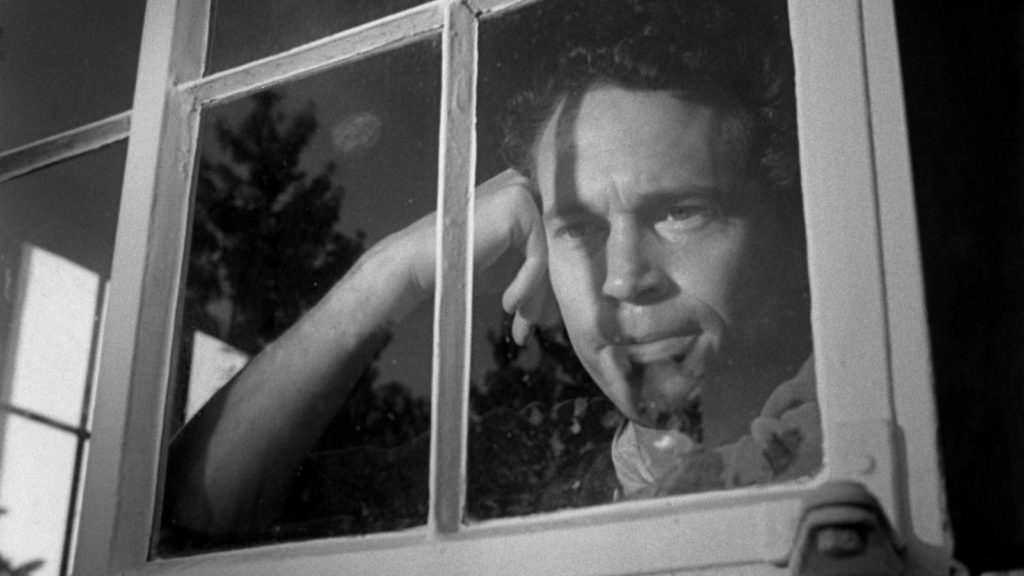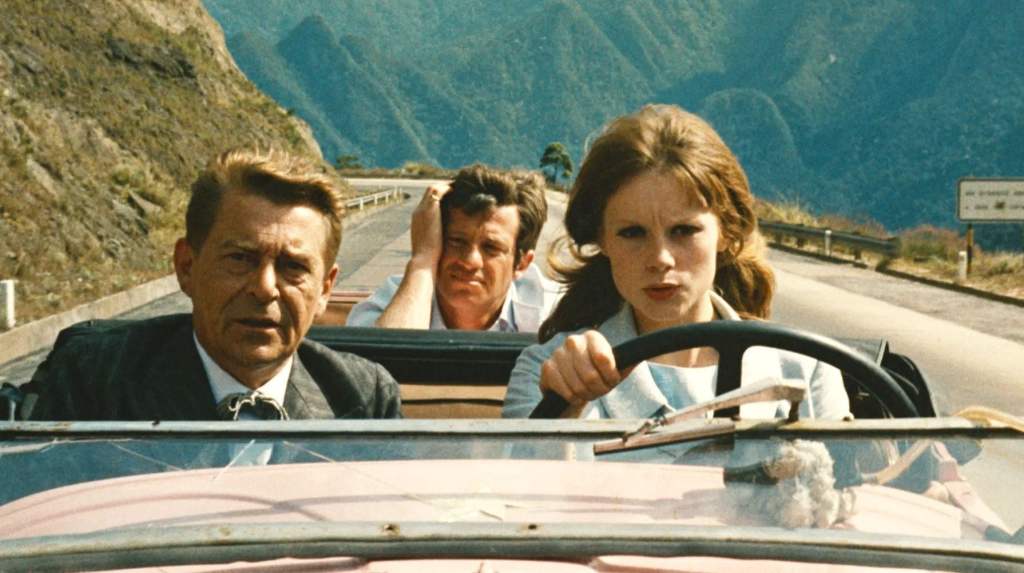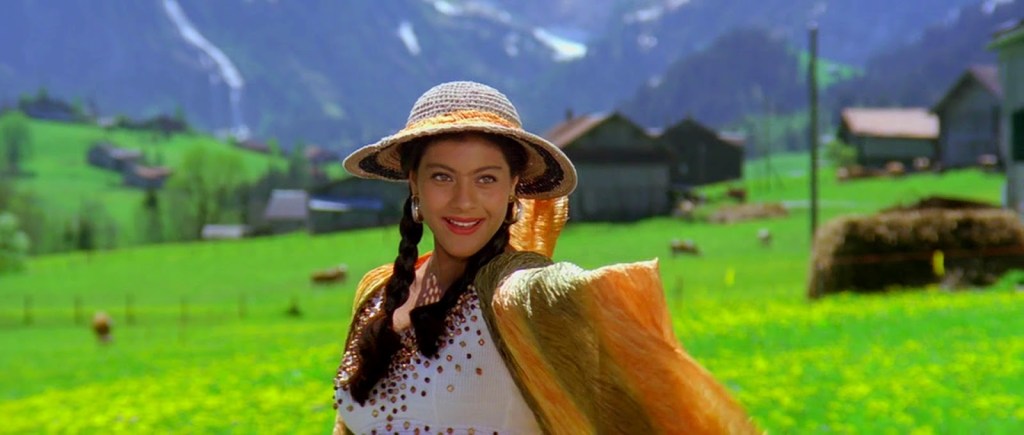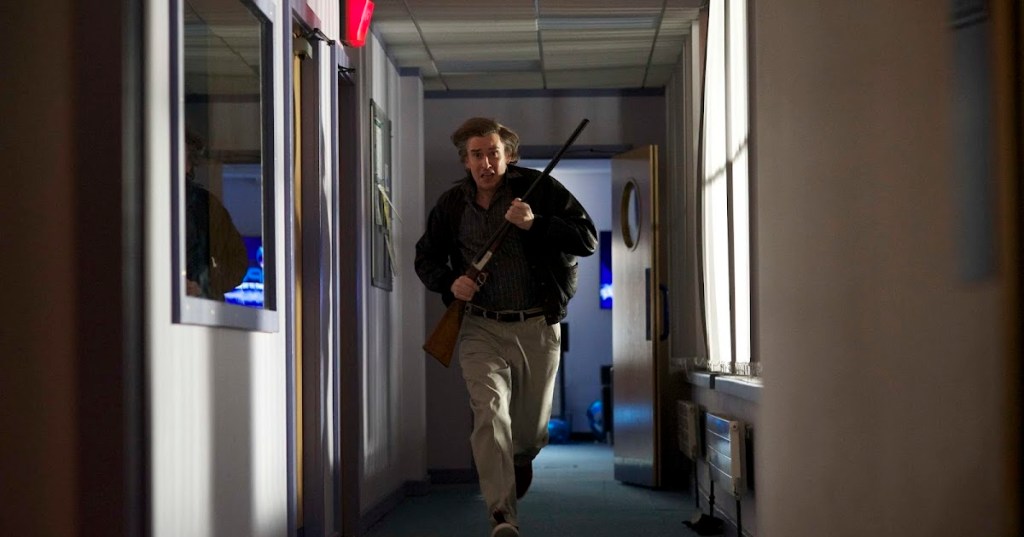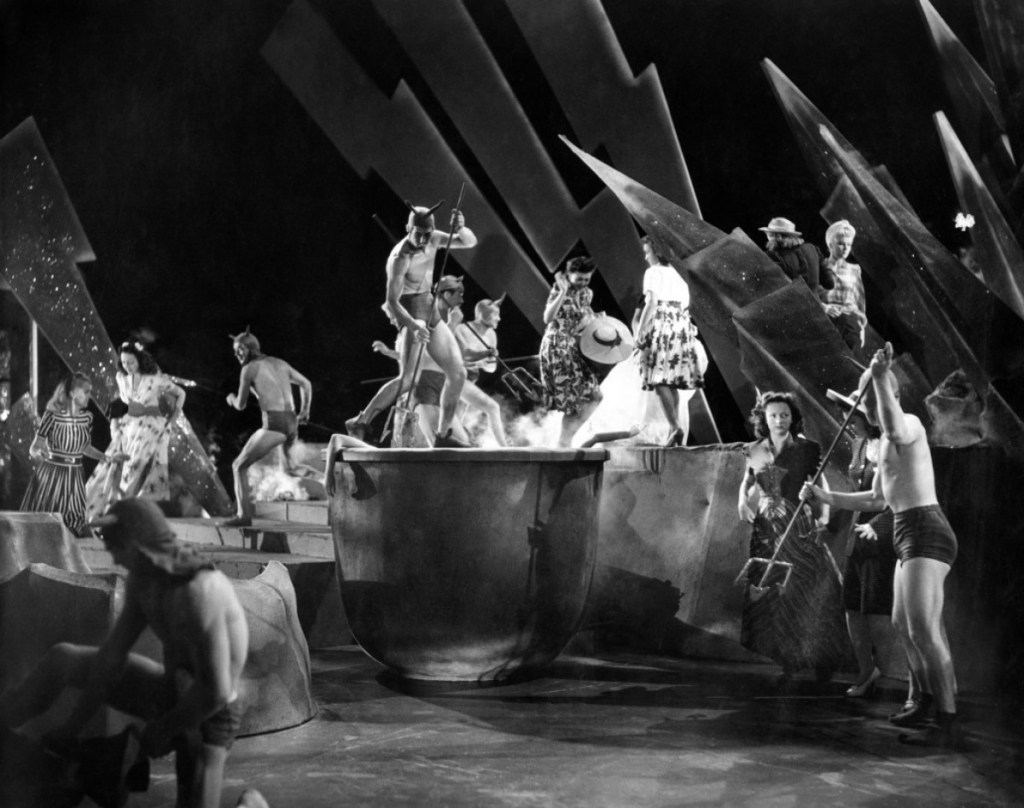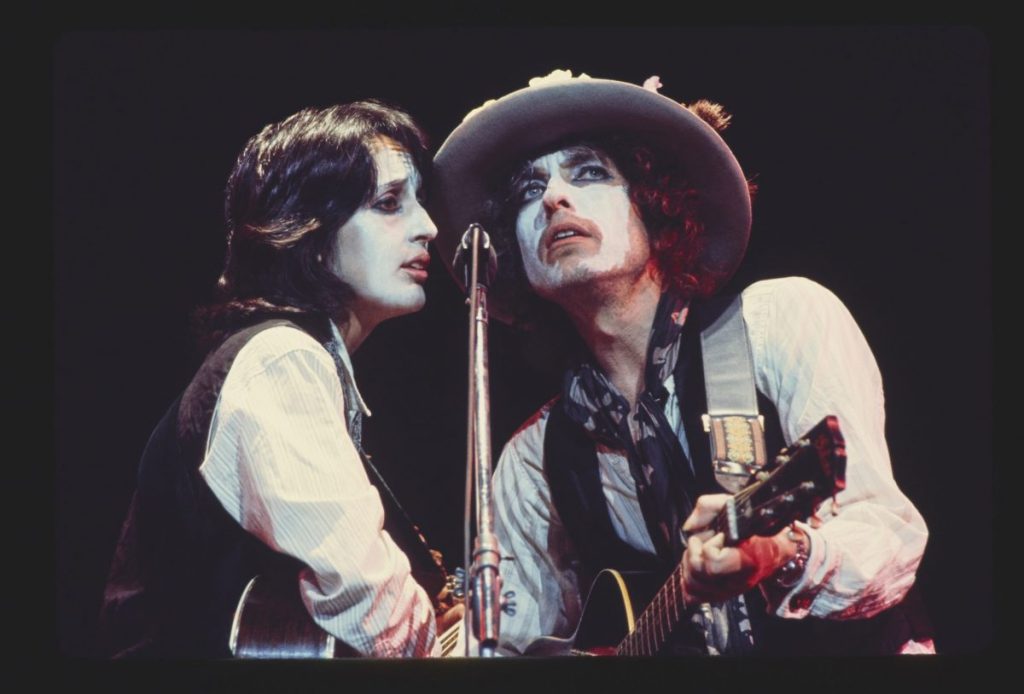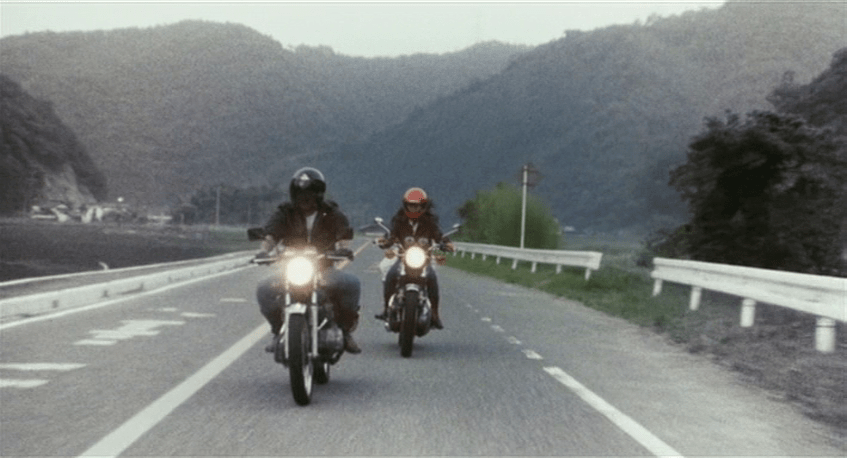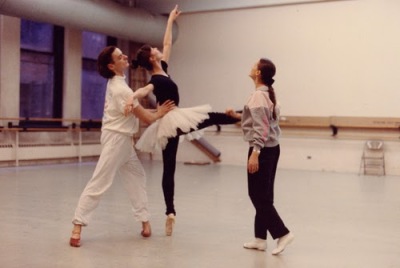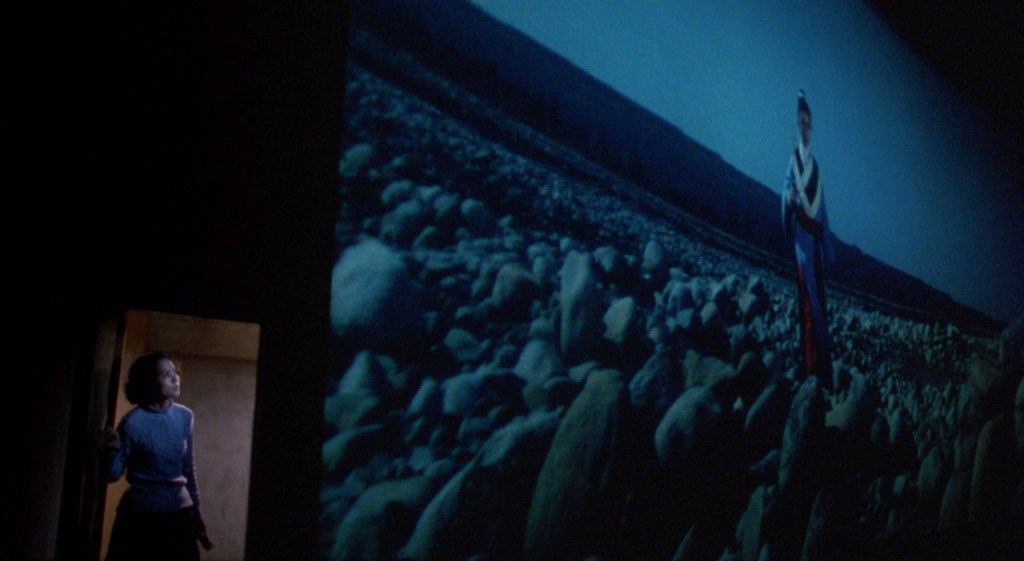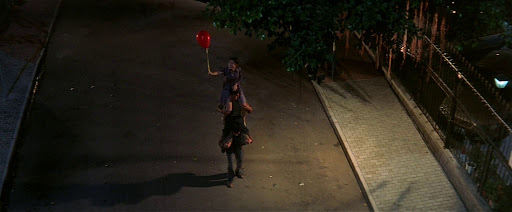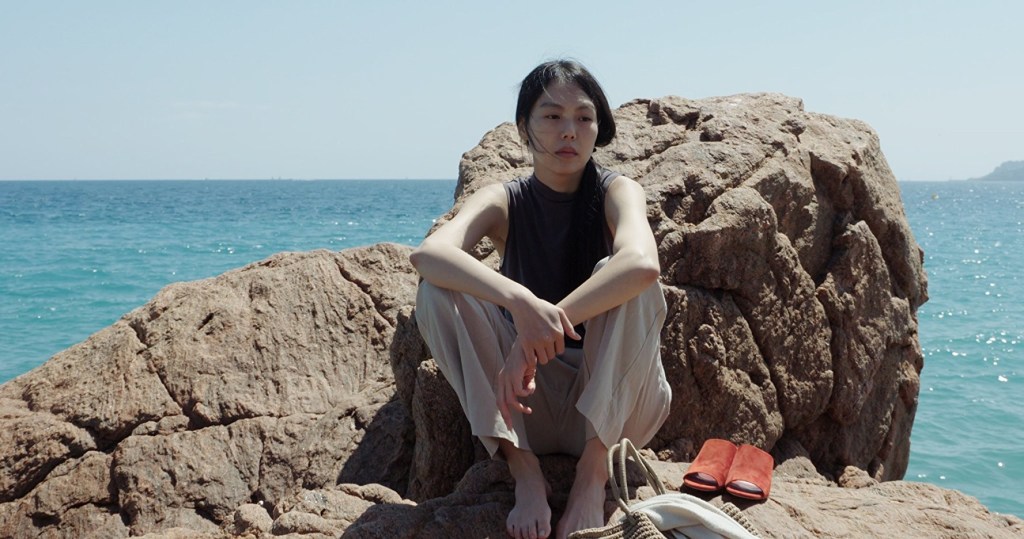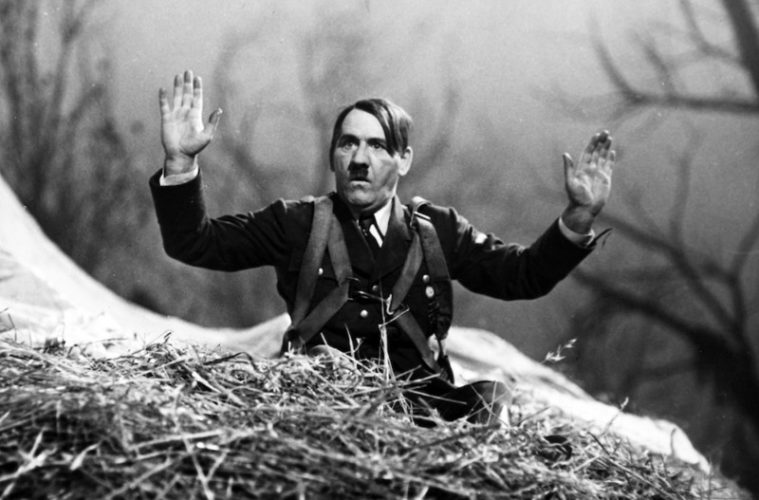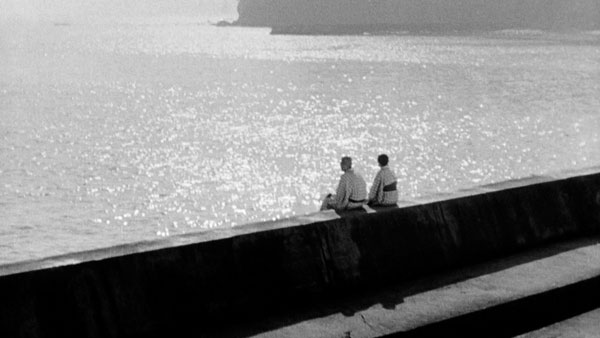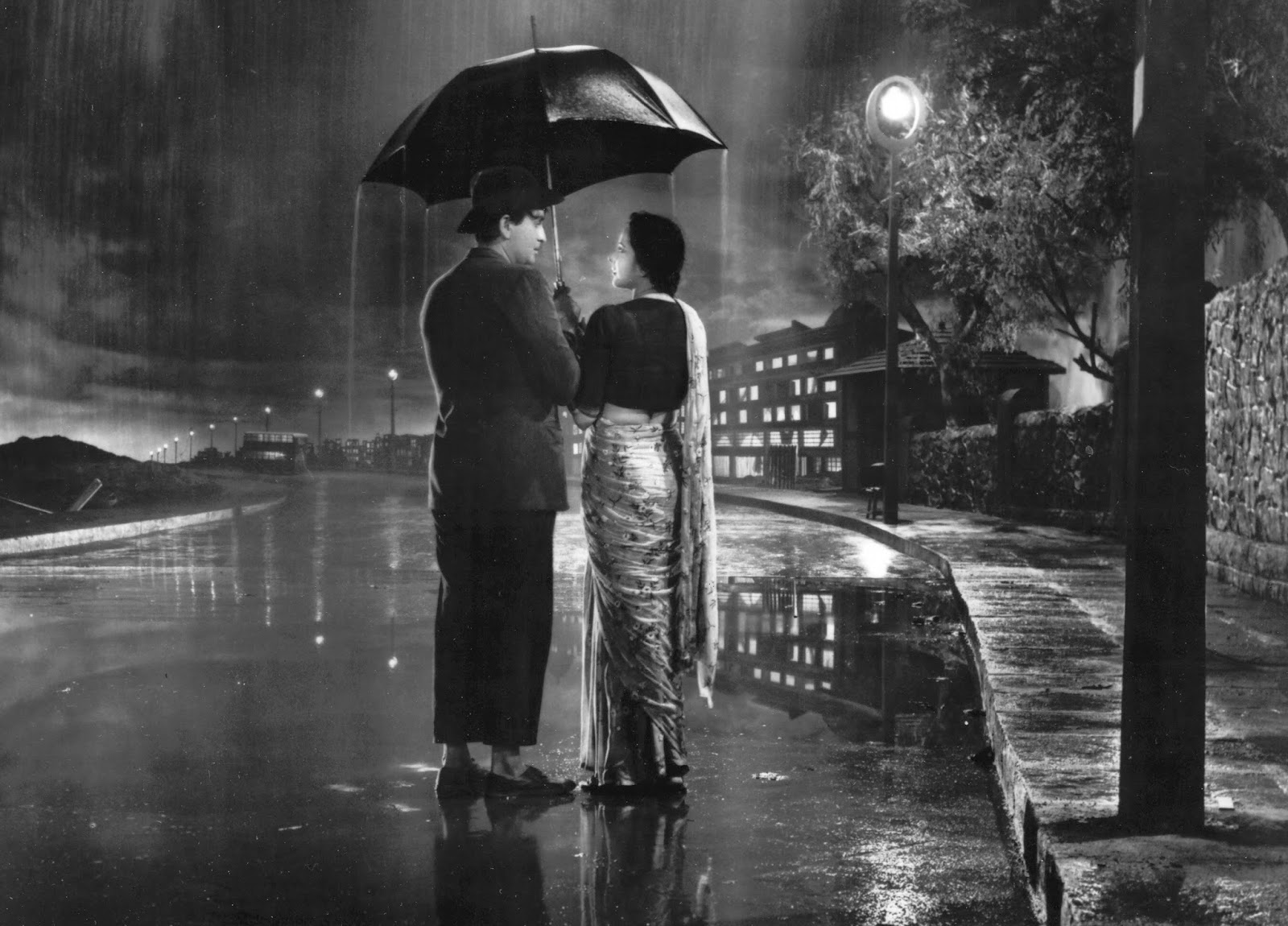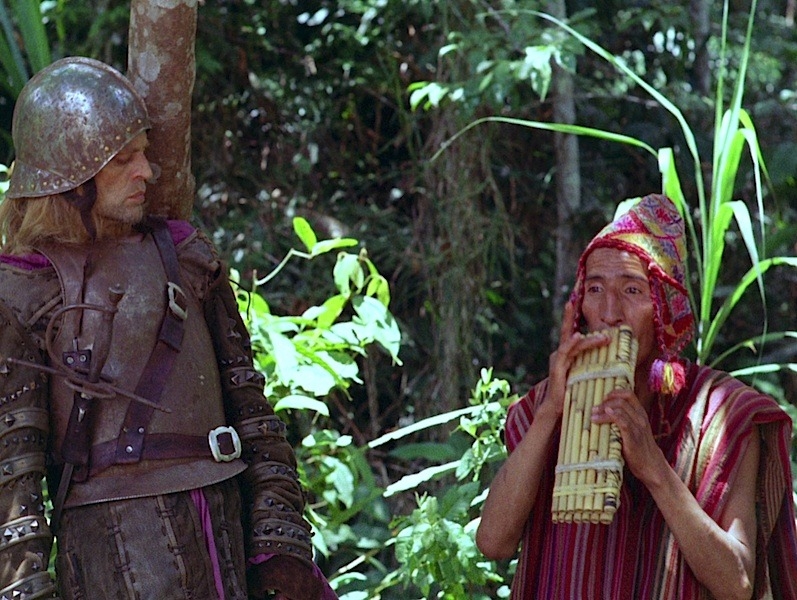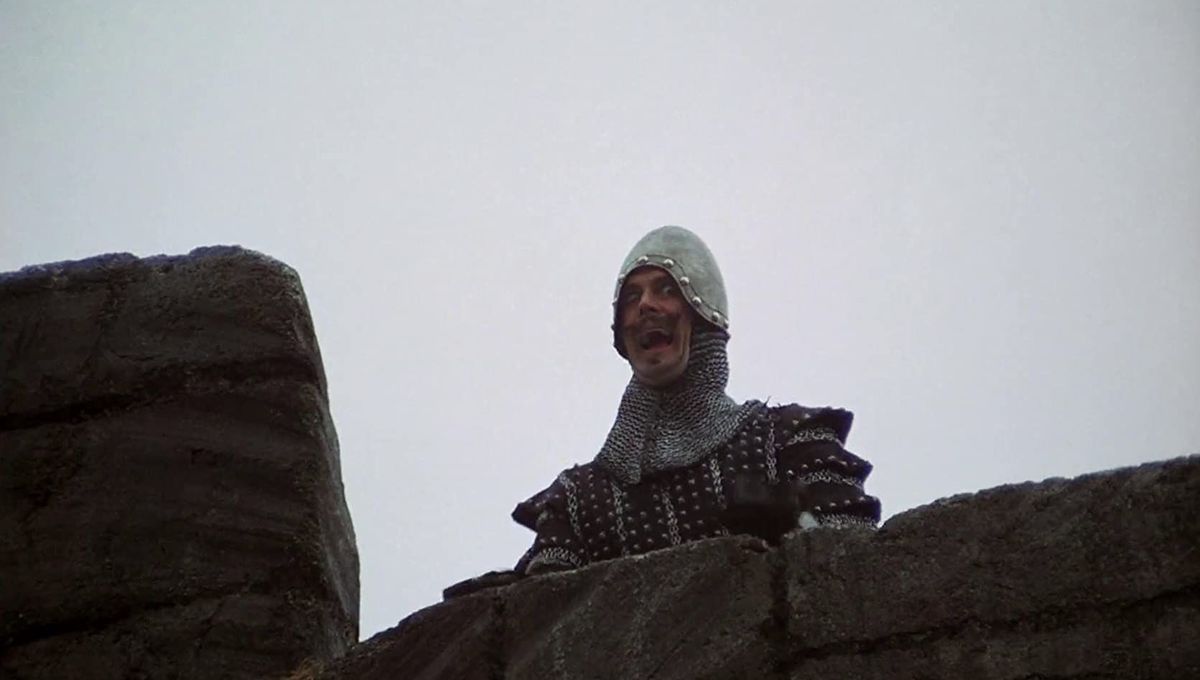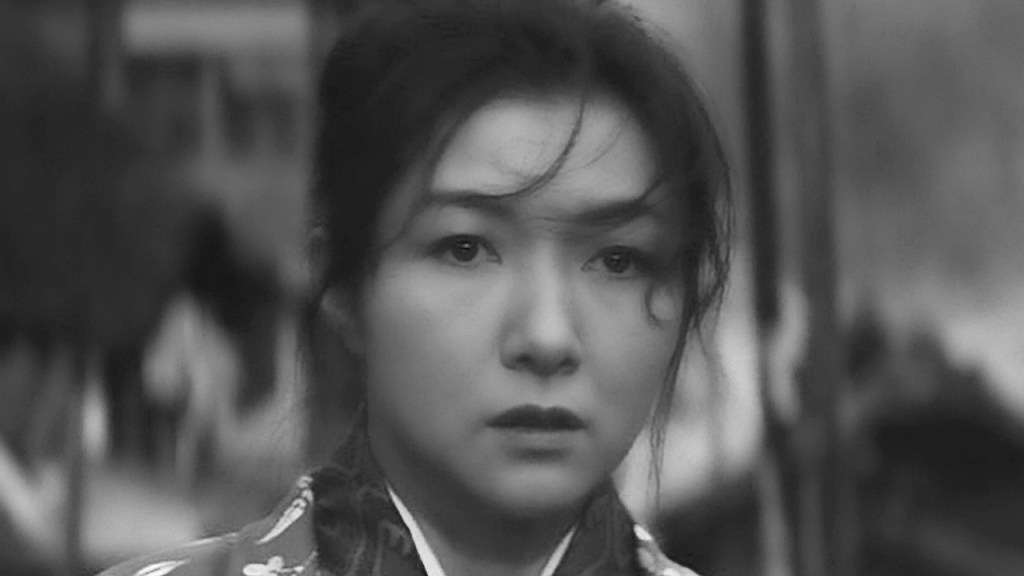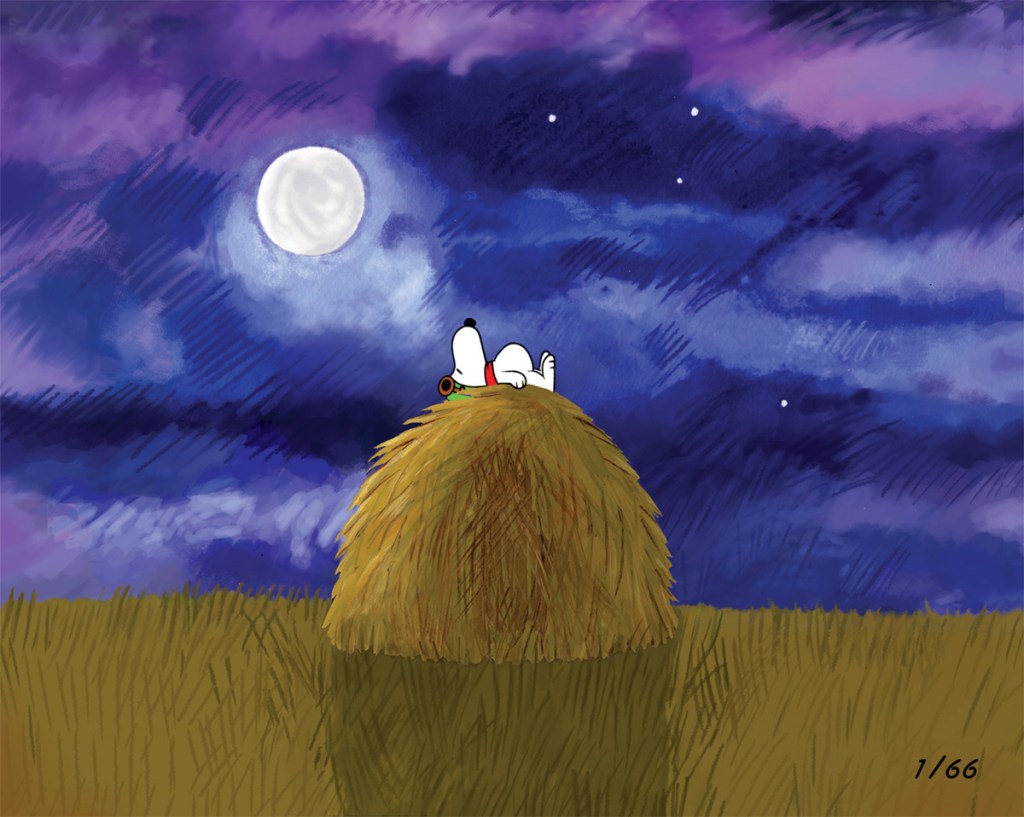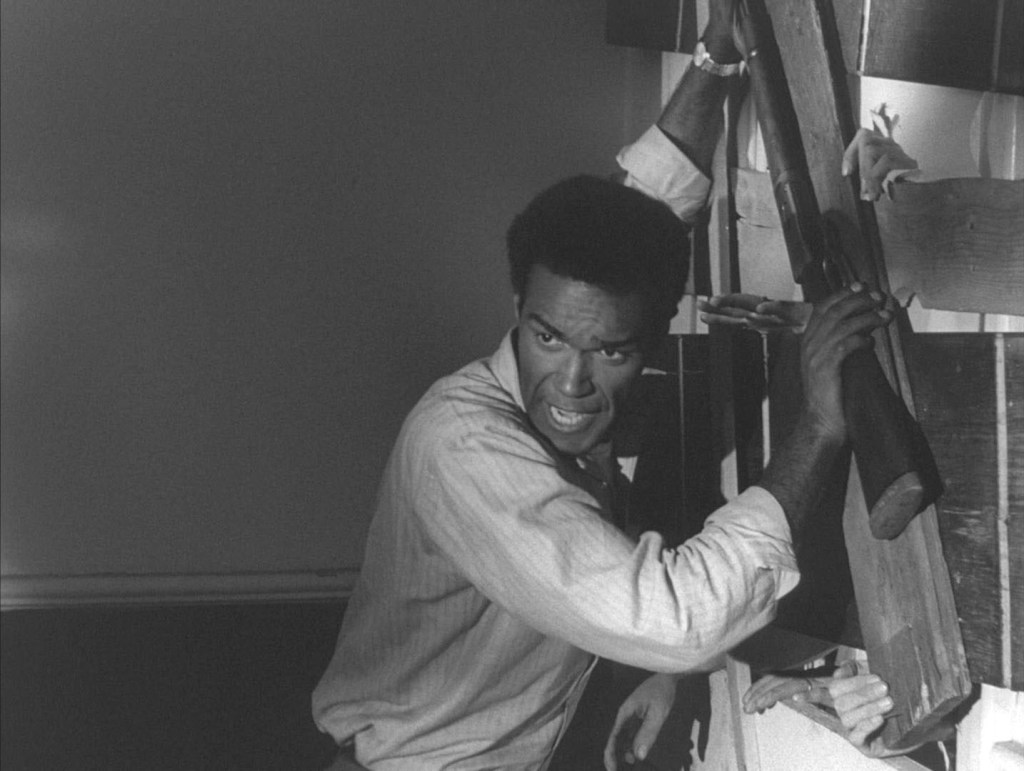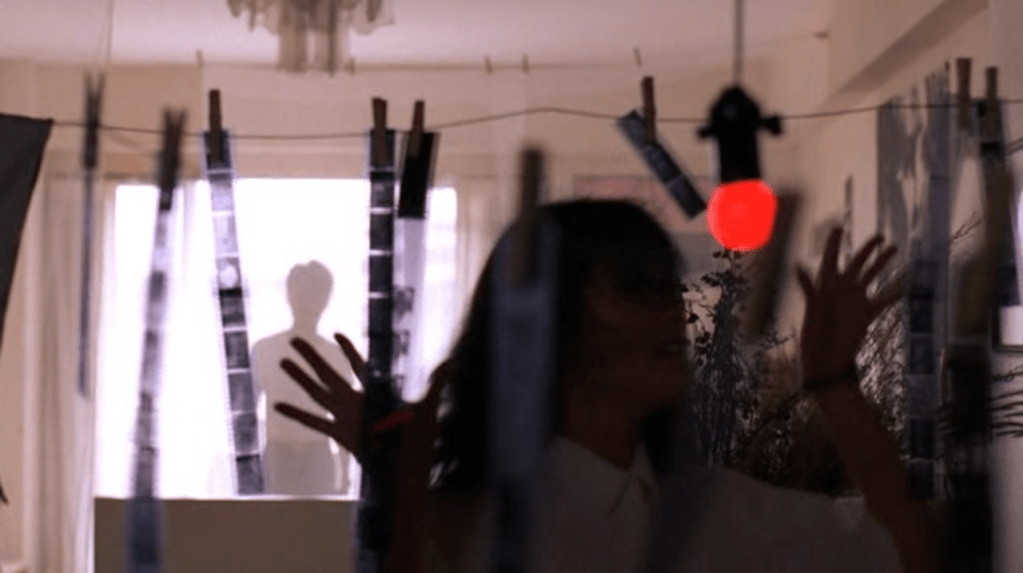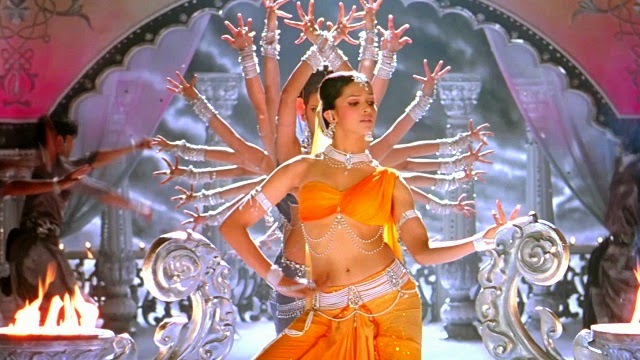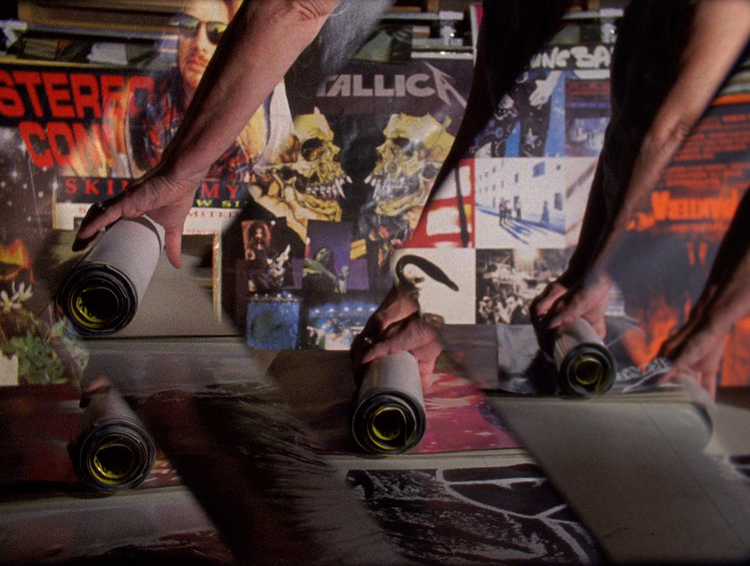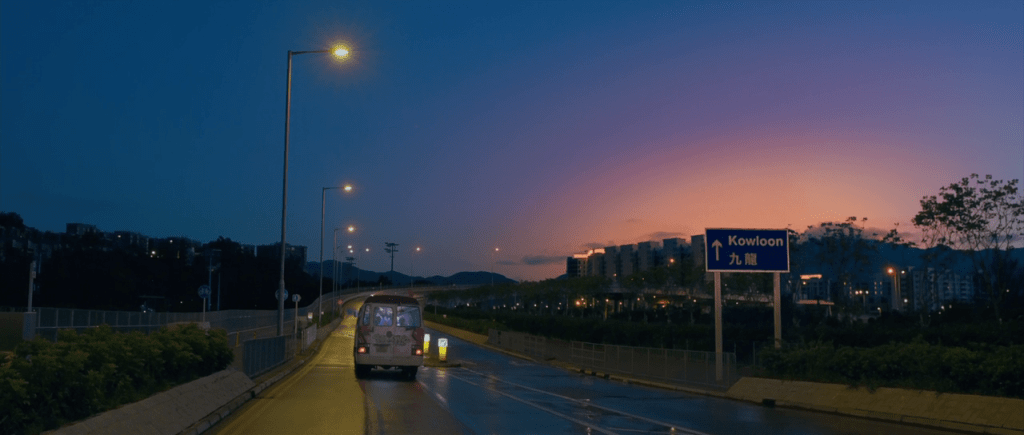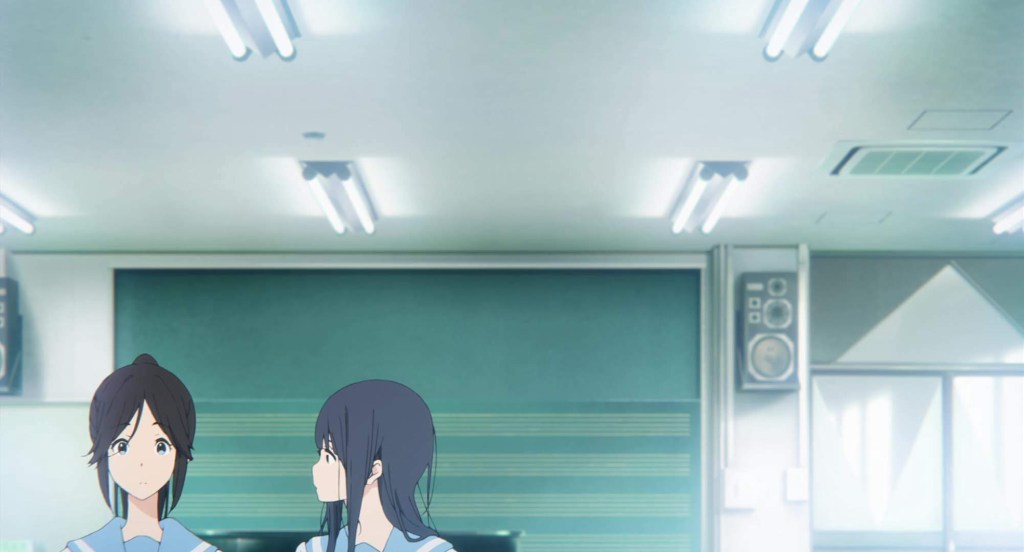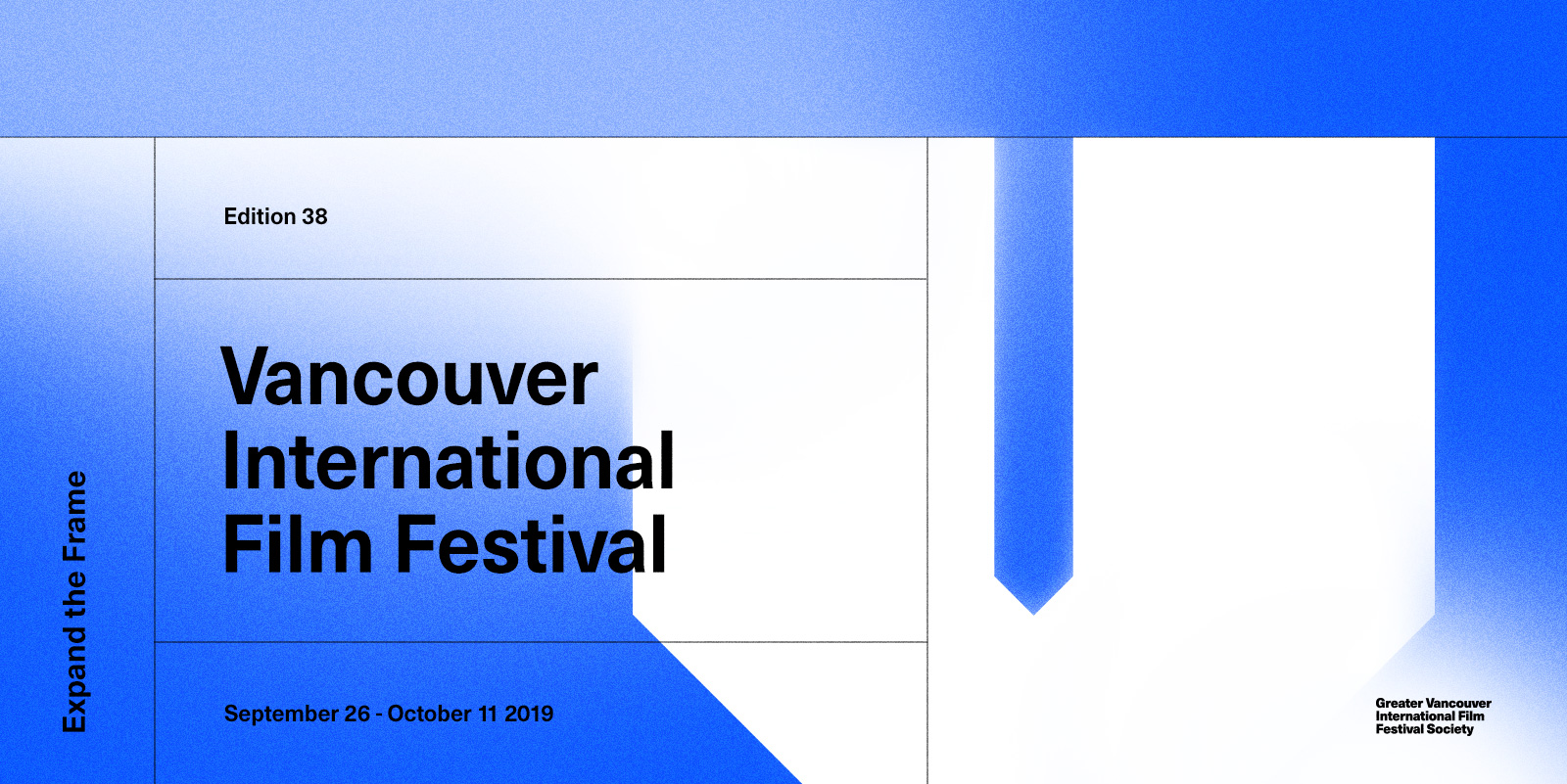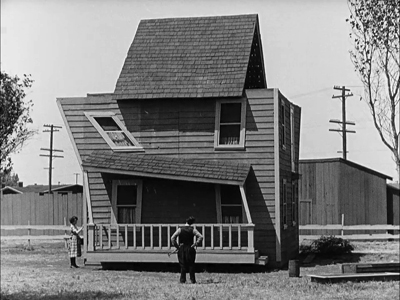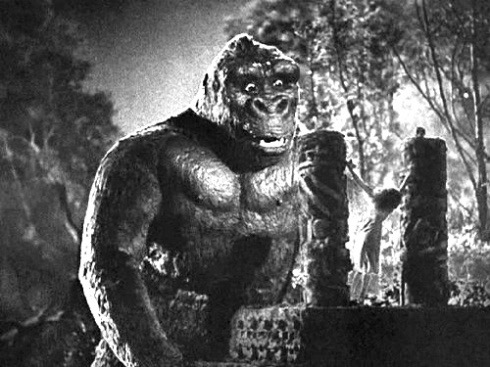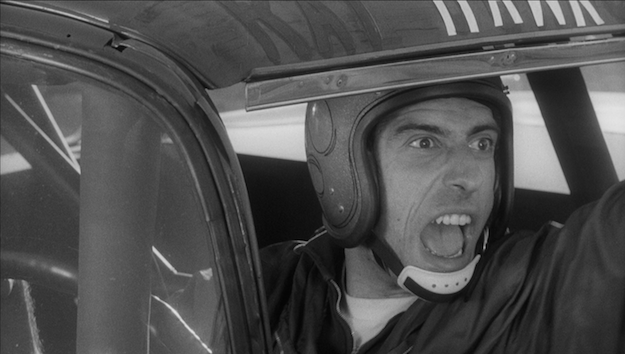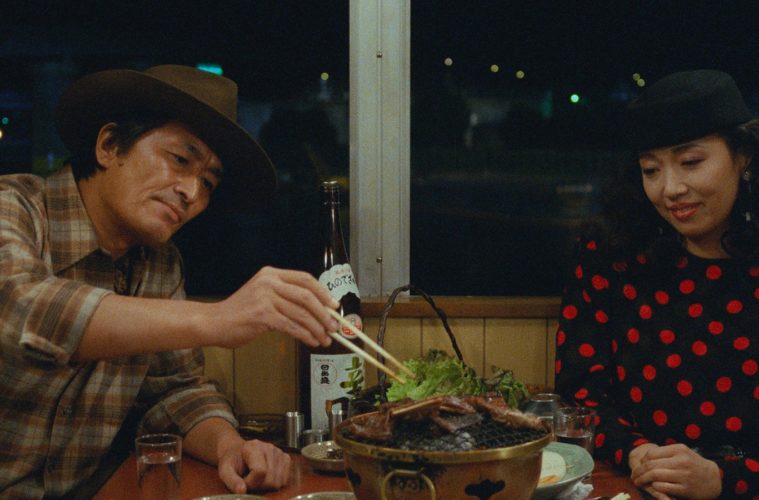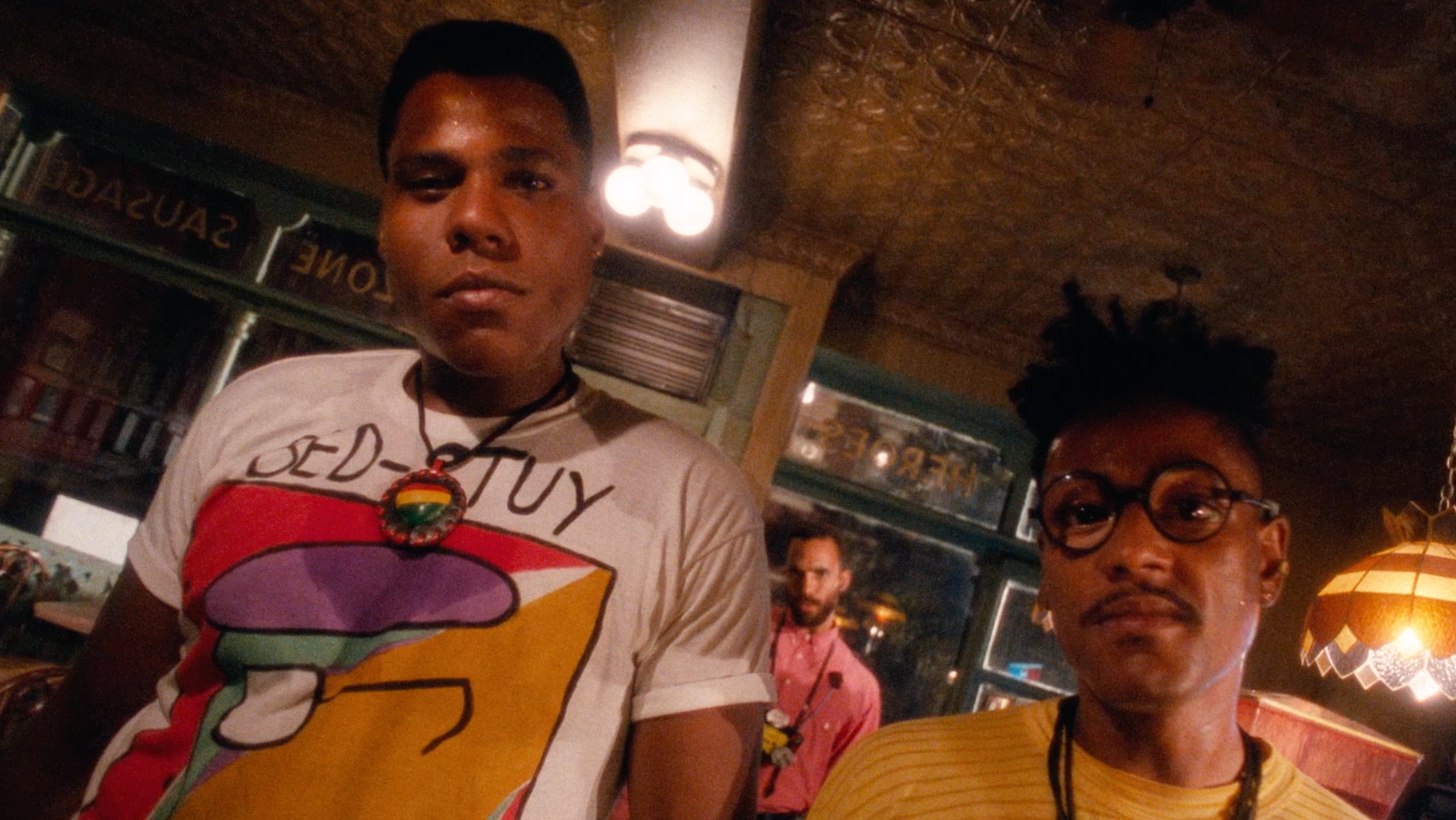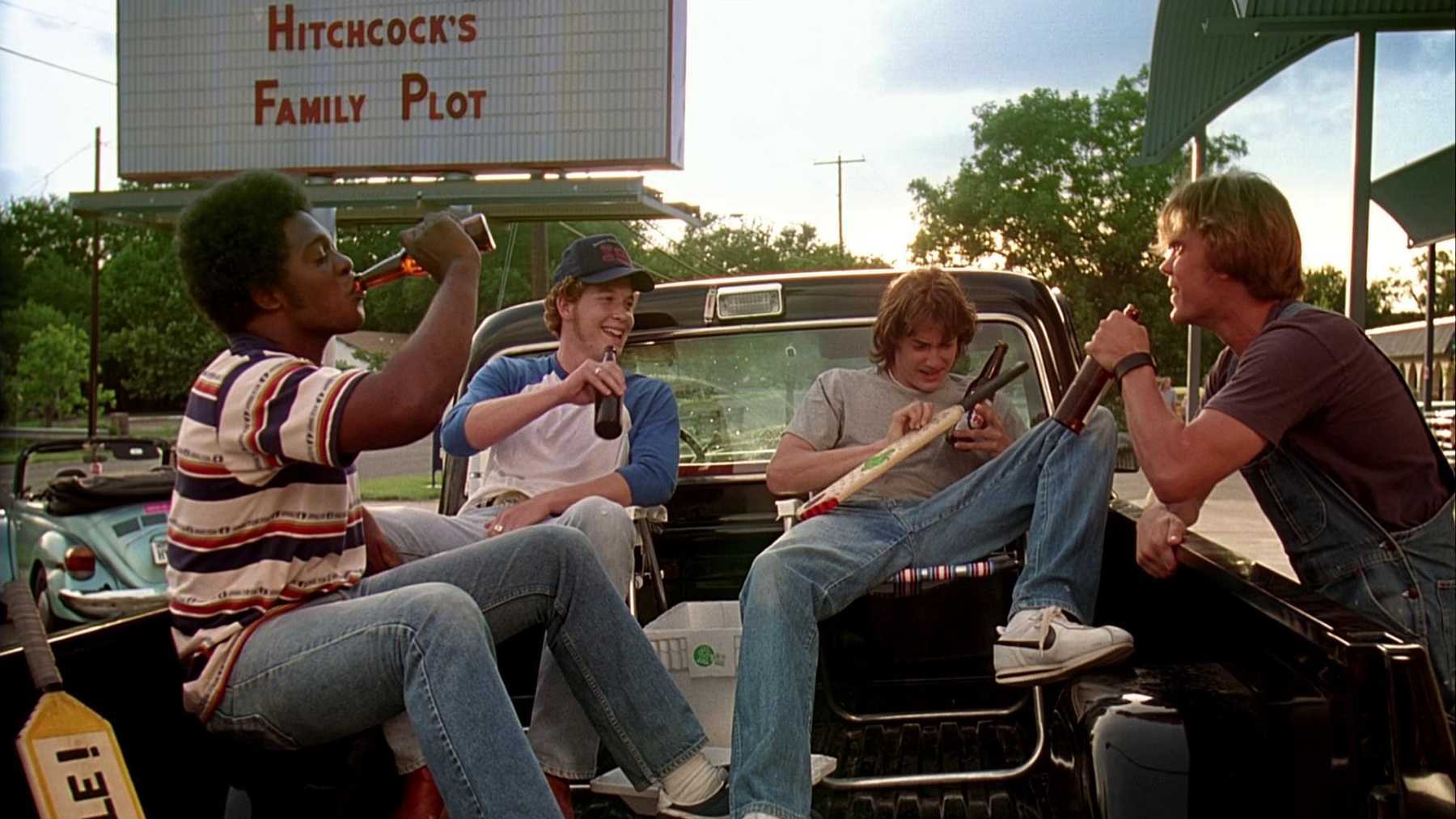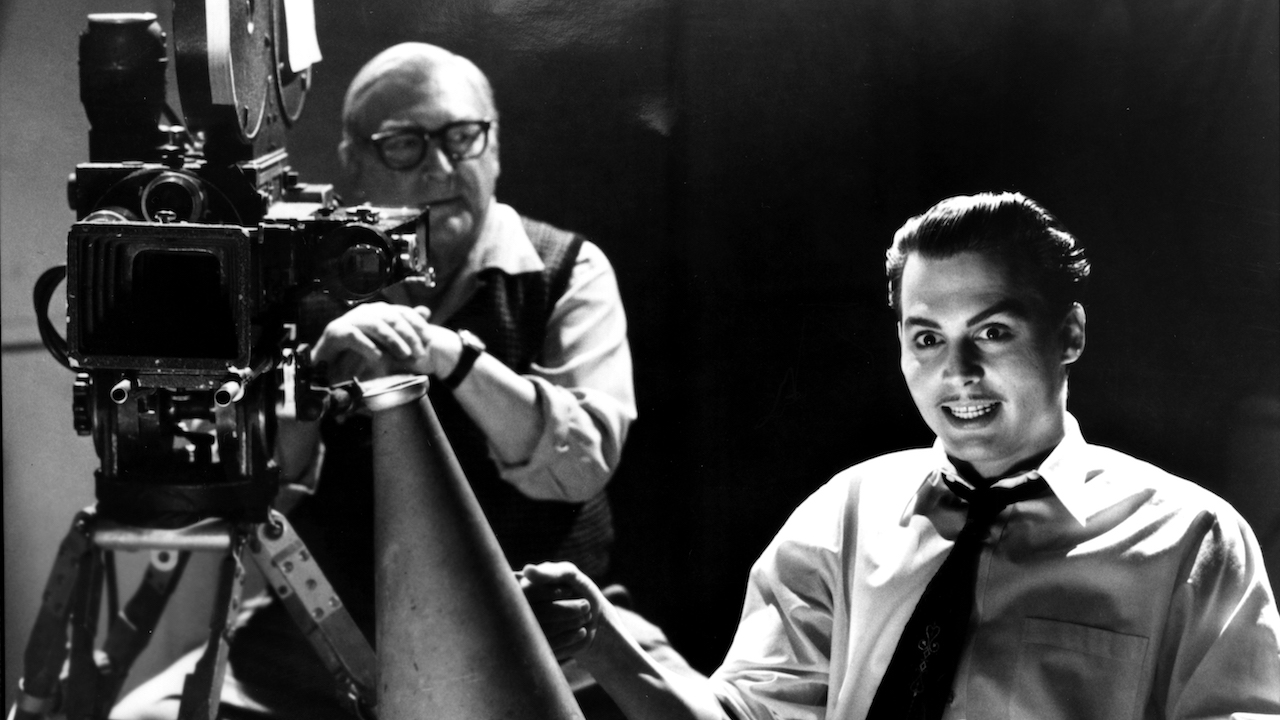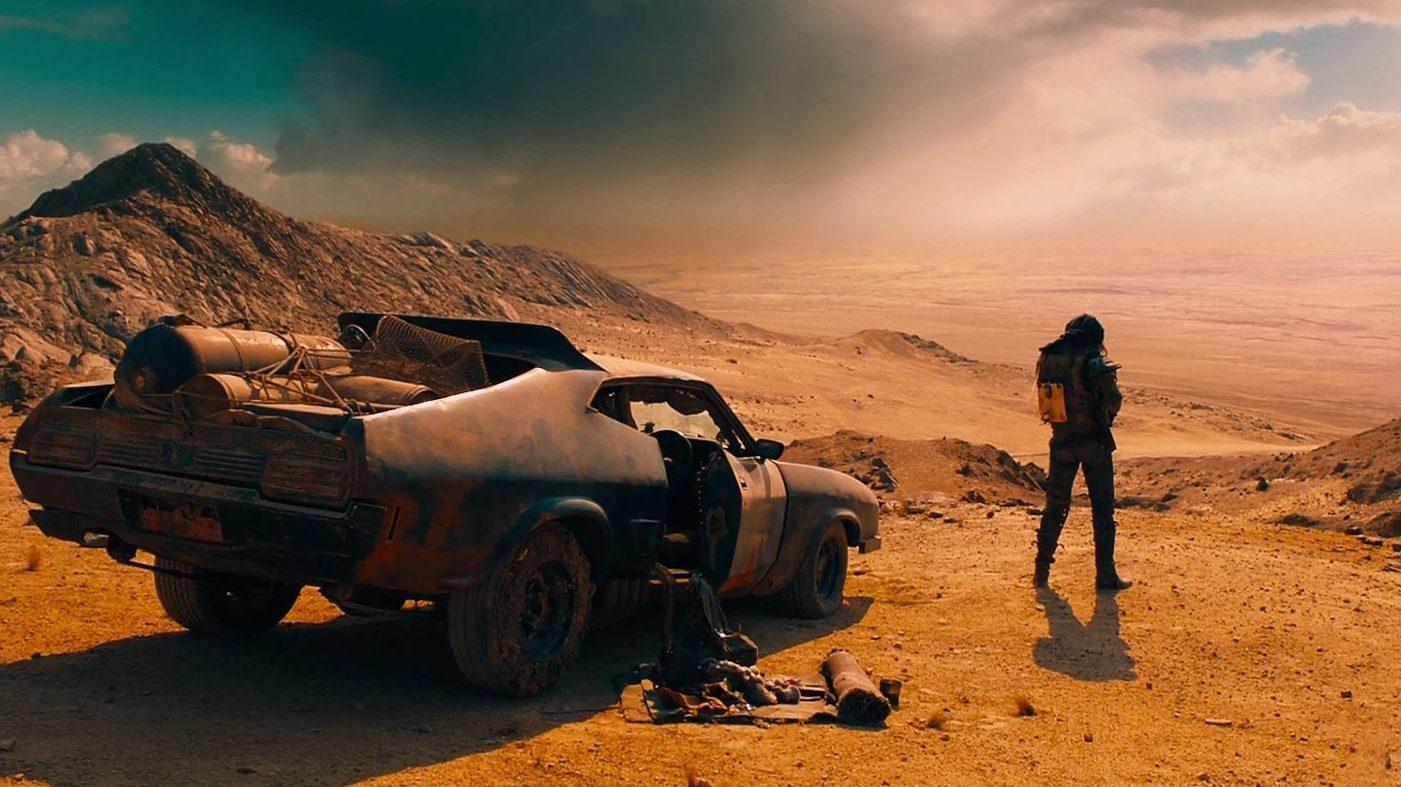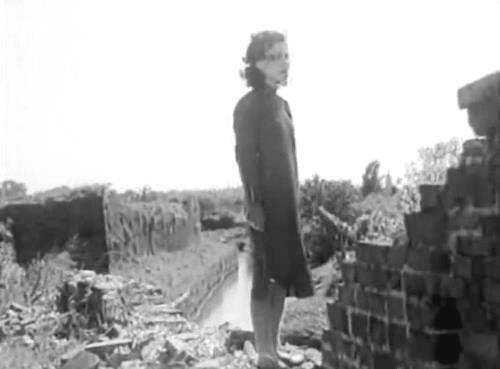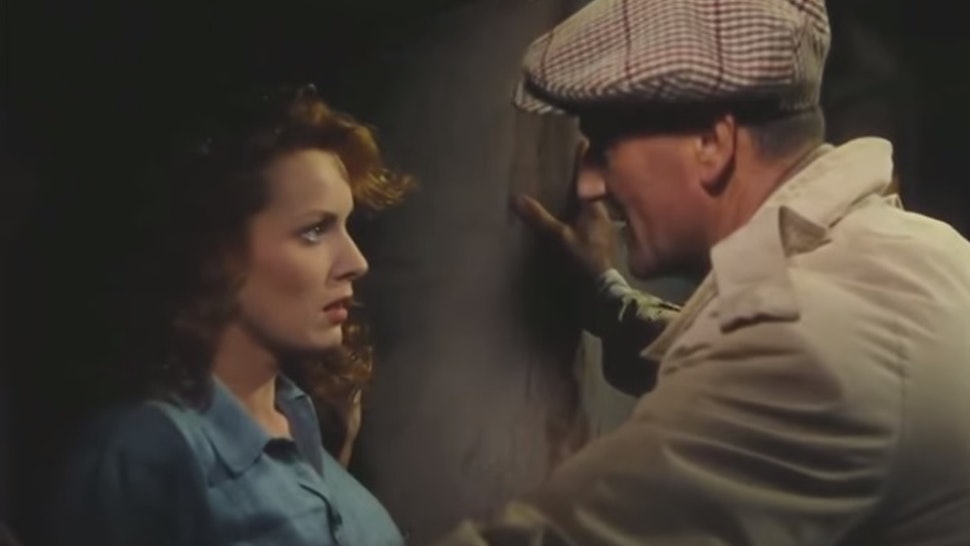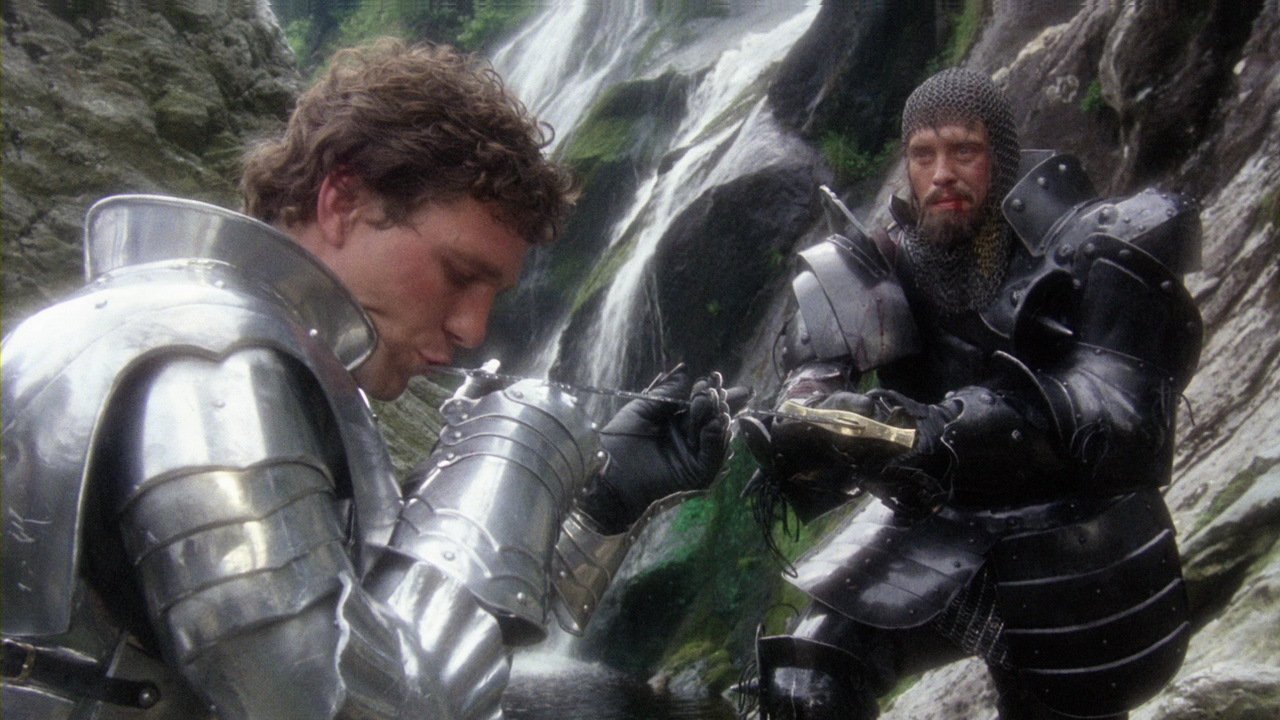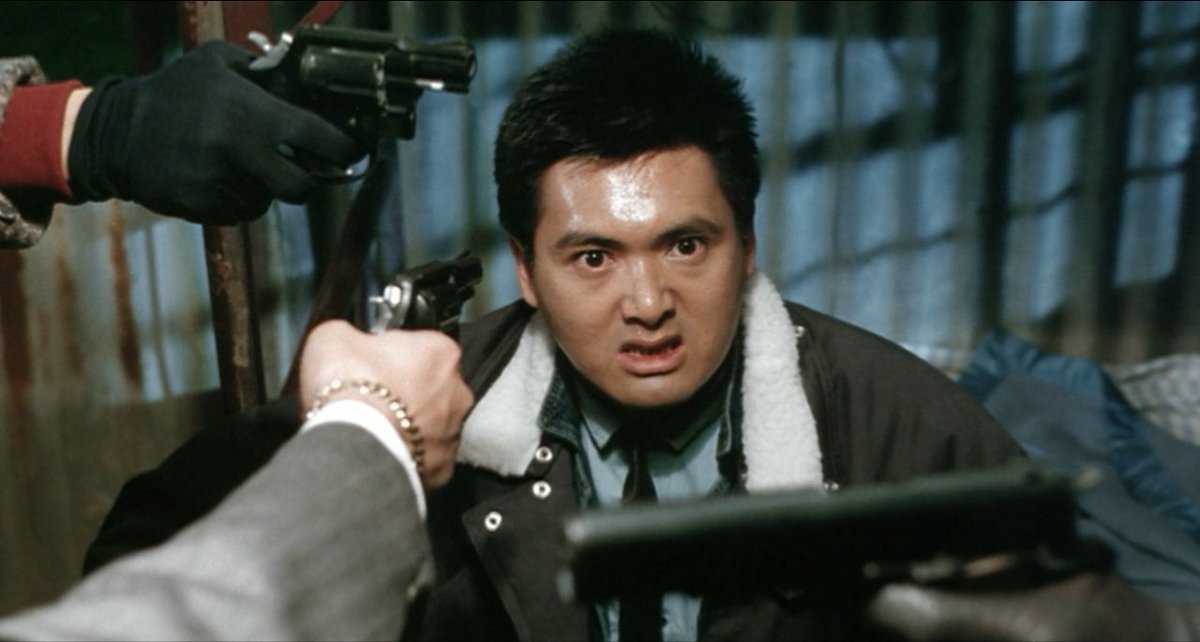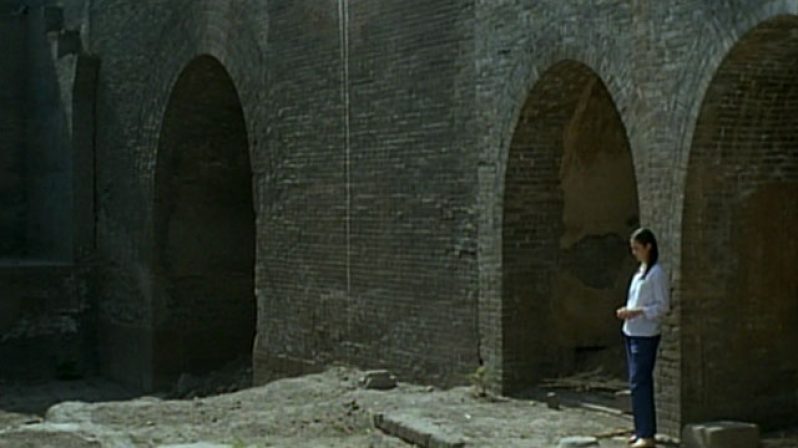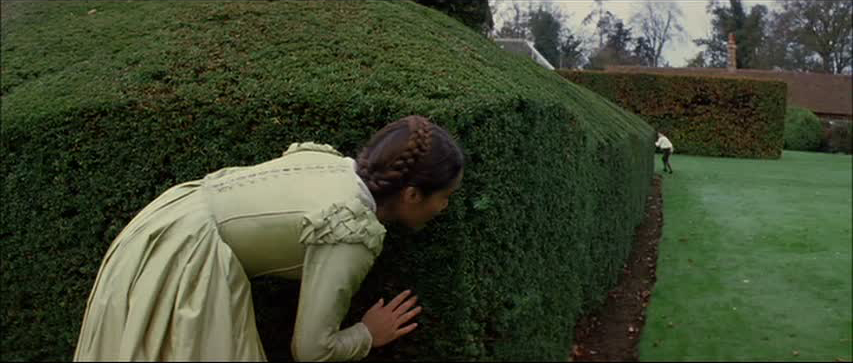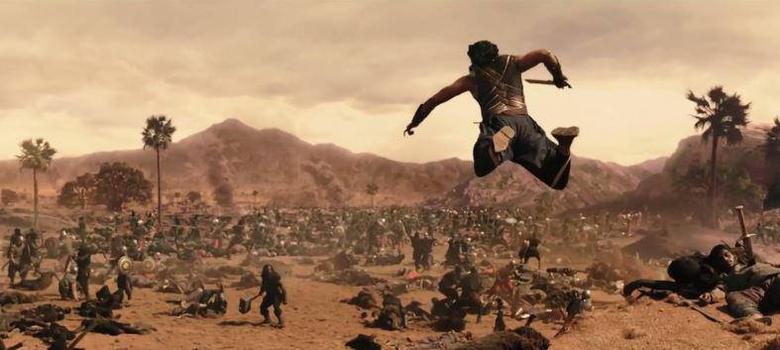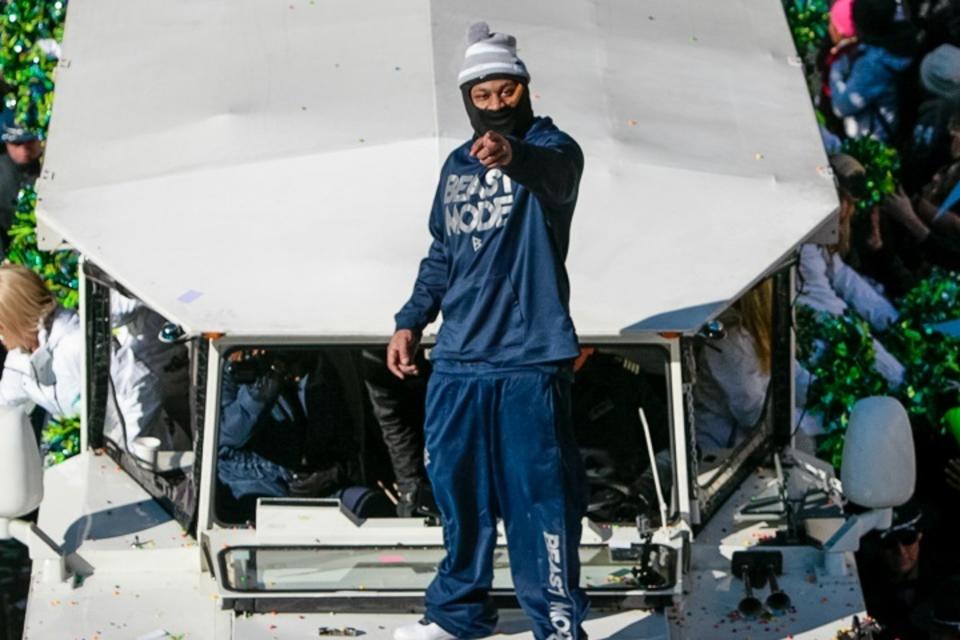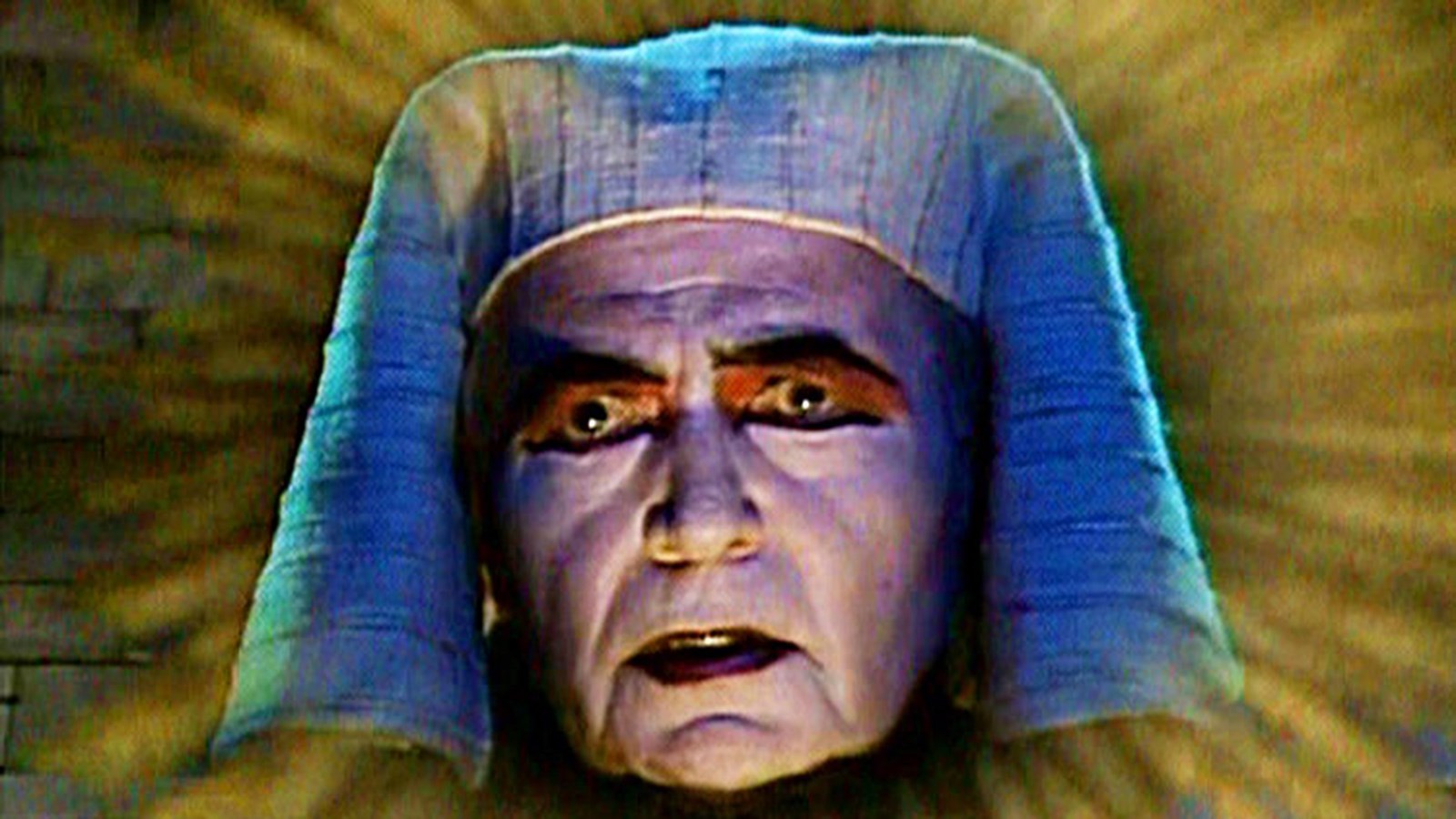
As I did last year, I asked the team here at Seattle Screen Scene to send in their favorites of the past year. They could be anything: movies, books, music, non-entertainment related thing, whatever. They could be from 2019, or from the past decade. No rules. This is what they said:
Lawrence Garcia:
Top 10 of 2019 (by world premiere):
1. To the Ends of the Earth (Kiyoshi Kurosawa)
2. Martin Eden (Pietro Marcello)
3. A Voluntary Year (Ulrich Köhler & Henner Winckler)
4. A Hidden Life (Terrence Malick)
5. I Was at Home, But… (Angela Schanelec)
6. The Young Ahmed (Jean-Pierre & Luc Dardenne)
7. The Traitor (Marco Bellocchio)
8. Tommaso (Abel Ferrara)
9. Belonging (Burak Çevik)
10. Synonyms (Nadav Lapid)

Sean Gilman:
1. Kyoto Animation
I was of course quite taken with Naoko Yamada’s Liz and the Blue Bird last year, and had begun watching KyoAni’s unclassifiable series Nichijou, but after the devastating fire that rocked Kyoto Animation’s studio this year, I spent some serious time catching up with their work, and nothing I watched in 2019 made me happier. Sound Euphonium!, the series from which Liz and the Blue Bird spun off, is as gorgeous as anything Makoto Shinkai has done, but with a depth of feeling and character that belies its teen drama trappings. The earlier series K-On! is more fun, more cartoonish, but ultimately just as rewarding., and even more dedicated to the purity of being a show about nothing. These series, along with Liz and Yamada’s 2016 film A Silent Voice, had me seeing echoes of the slice-of-life anime genre everywhere: from more obvious antecedents like Nobuhiro Yamashita’s Linda Linda Linda to two of my favorites from this year’s VIFF: Mikhaël Hers’s Amanda and Dan Sallitt’s Fourteen, even in Martin Scorsese’s The Irishman. In the 2003 documentary The Mindscape of Alan Moore, the genius writer and wizard predicted that thanks to exponentially increasing information, right around 2015 our culture would reach its boiling point and turn to steam. I think he’s undeniably been proven correct, and these films and shows, grounded in the minutiae of interpersonal experience, are the only antidote I’ve found to the speed and weightlessness of the present.
2. Chinese Movies
A perennial entry on my list of course, at least for the past six years. Most of my movie-watching this year was project-related: an obituary for Ringo Lam, a big piece on Jia Zhangke, a complete run through the work of Fruit Chan and partial dives into the filmographies of Ann Hui and Herman Yau. Seems like I spent the first quarter of the year on Jia, as the initial essay led to a lecture and a comprehensive look at his use of pop music, and then multiple podcasts where I talked at length about Ash is Purest White. But on the whole, this year’s Chinese films have been disappointing, whether because 2018 was such a good year, or as a result of the censorship and political concerns that have split Chinese-language film into multiple, mutually-hostile camps. Increasingly dispirited, I realized a couple of weeks ago that I hadn’t watched a Johnnie To film all year. None since April of 2018 in fact. But with a rewatch of Romancing in Thin Air (his best film of the decade) and an initial viewing of his surprise 2019 film Chasing Dream (dropped mere weeks after rumors of his retirement traversed the twitterverse), I’m feeling a bit better.
3. Star Wars
Well, until I think about Rise of Skywalker that is. I’d like to think that its failure can be agreed to be the nadir of the Disneyfied blockbuster era. That in the future we’ll be getting more idiosyncratic works out of the properties the corporate behemoth mined from my childhood faves. The Mandalorian is cool, and some of the Star Wars comics are pretty great (Doctor Aphra!). Rewatches of Clone Wars, Rebels, Rogue One, and The Last Jedi have confirmed that is possible to produce good, distinctive work under the Disney umbrella. But I also watched all of the MCU movies this year, and while I’ve now developed a grudging liking for most of them, they have yet to produce anything as good. And if the MCU is the Star Wars model moving forward. . . whelp. I’ll just be retreating a couple of decades into the EU books in the new year, I guess.
4. Reading Books
Speaking of books, I finally finished Robert Caro’s The Power Broker and it is magnificent. I loved it so much that I immediately started reading his LBJ series, knowing that it’ll probably take me most of the 2020s to finish it. I don’t care, it’s great. My chronological read-though of Agatha Christie continued, with some of the best and some of the worst books I read this year. I also read a bunch of Eliot Weinberger (the best) and continued to hack away at Against the Day and Middlemarch (both great) and even started another couple massive, but delightful, book projects (Ducks, Newburyport and Kim Stanley Robinson’s Mars Trilogy). I finally caught up with some standout comics from the past: the first two volumes of Alan Moore’s Swamp Thing, Frank Miller’s The Dark Knight Returns, and Moore’s League of Extraordinary Gentlemen. My chronological read through of Marvel Comics continues apace as well: most of it is bad, but the Fantastic Four, Doctor Strange, and The Amazing Spider-Man are generally really good, and Jim Steranko’s run on Nick Fury, Agent of SHIELD is the first thing to really break with the Lee/Kirby model and take the superhero comic somewhere new and weird.
5. The Beacon Cinema
The most exciting thing to happen to the Seattle screen scene in 2019 was the opening of the Beacon. I only made it there opening weekend, but checking the listings every week always sparks the kind of joy that’s been missing around here for a long time. And those shows I did see were the best non-VIFF theatrical experiences I had all year: the opening night show of Gold Diggers of 1933 (sweltering hot because they hadn’t figured out the AC yet, but no one cared) and the following day’s quadruple feature of City Lights, To Be or Not To Be, Speed Racer, and Buddha’s Palm. Nothing in 2019 made me like movies more.
6. Free Time
Maybe it’s just that Award Season has me down. It’s the time of year when I feel obligated to watch a bunch of movies I’m not really interested in, just so I can have a say in what people are calling the best of the year. It’s very dumb. But looking back at the movies I watched this year, almost all of them were related to some kind of writing project. A lot of those were very good, of course, but right now I’m really treasuring the movies I watched for no reason at all. Desperately Seeking Susan, for example. Or the Kyoto Animation stuff. The slasher movies I caught up with at Halloween: the Slumber Party Massacres and the first two Halloween sequels. Watching Shaolin vs. Lama dubbed just because RZA mentioned it in a video. Even capping off my MCU binge with Howard the Duck was an absolute blast. I’m increasingly ambivalent about the whole writing about movies thing, about turning what used to be my hobby into (almost completely) unpaid work. Watching things without a deadline, for no reason other than that it’s there and it looks interesting, should be the goal, right?
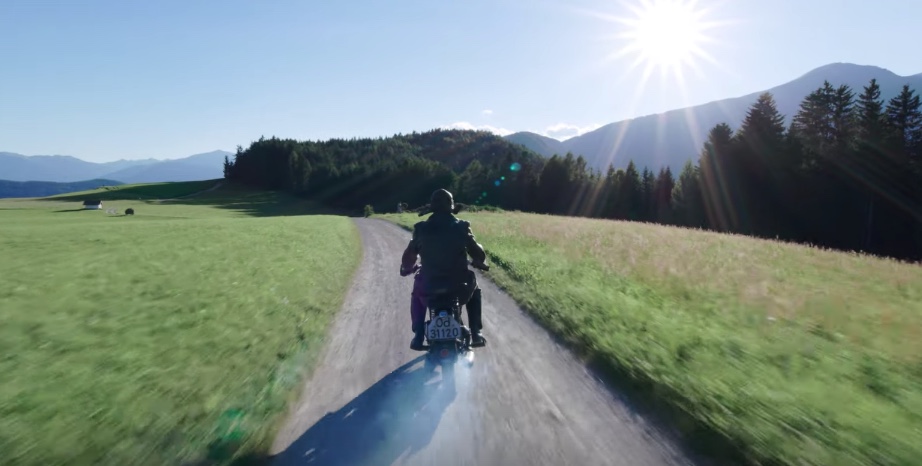
Jhon Hernandez:
Not a very strong year of movies for me. Didn’t see much, and didn’t love much of what I saw. The list includes new films, and also the best old films I saw this year.
A Hidden Life (Terrence Malick)
Richard Jewell (Clint Eastwood)
The Irishman (Martin Scorsese)
Ad Astra (James Gray)
Little (Tina Gordon Chism)
A Day in the Country (Jean Renoir)
Set It Off (F. Gary Gray)
Bamboozled (Spike Lee)
Lo Zebu e la Stella (Franco Piavoli)
Hope 2020 is better!
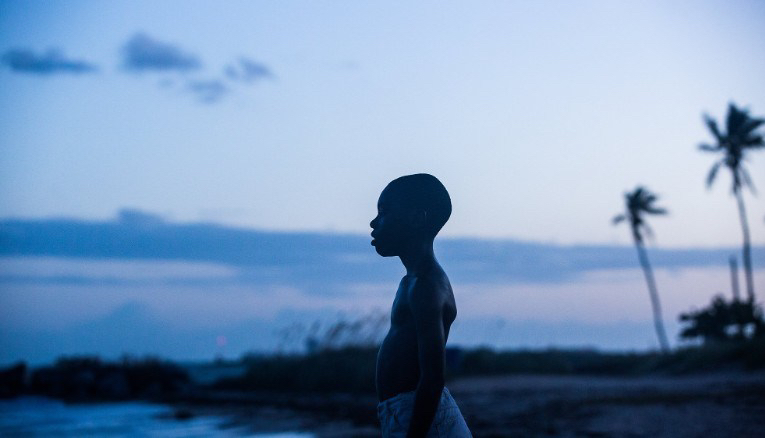
Sue Lonac:
Sue’s Top Ten Films of the Decade
1. Moonlight (dir. Barry Jenkins, 2016): The most beautiful and moving film of the decade, Moonlight also featured some high-risk experimental moves that paid off handsomely. It turned mistakes into integral structural elements, cast three actors who look nothing alike as the same character, and expertly fused indelible moments of reality (like Mahershala Ali’s actually teaching Alex R. Hibbert how to swim) into the fictional world. A masterpiece.
2. Spider-Man: Into the Spiderverse (dir. Bob Persichetti, Peter Ramsey, Rodney Rothman, 2018): Utterly brilliant, vibrantly imaginative, totally hilarious. John Mulaney should have won an Oscar for his sassy turn as Peter Porker/Spider-Ham.
3. Leave No Trace (dir. Debra Granik, 2018): This intensely suspenseful and profoundly affecting drama is a close-up depiction of a young woman’s mastery of survival skills and her simultaneous painful individuation from her father. Not one false step for the length of the film.
4. What We Do in the Shadows (dir. Jemaine Clement, Taika Waititi, 2014): This vampire-mockumentary is the funniest film ever made.
5. Mad Max: Fury Road (dir. George Miller, 2015): The guitar is also a flame-thrower.
6. Get Out (dir. Jordan Peele, 2017): Jordan Peele’s “elevated horror” film is both a completely terrifying thriller and an incisive, illuminating comment on the emotional experience of being marginalized and never truly safe. Absolutely original.
7. Parasite (dir. Bong Joon-ho, 2019): Not as bonkers as Snowpiercer, less brittle than Okja, Bong Joon-ho’s latest exposes the deep cruelties of class inequity with real feeling but no sentimentalism. The film is tragic, hilarious, stylish, and resolutely unflinching in its look at human ugliness and human frailty.
8. Selma (dir. Ava DuVernay, 2014): This film had one of the most thrilling climaxes of the decade in the Reverend Dr. Martin Luther King’s soaring speech at the courthouse. The film is even more remarkable given that DuVernay had to write all the speeches herself because Steven Spielberg refused to give up the film rights to King’s real speeches. Somehow, she caught the tone, the rhythms, and the distinctive verbal finesse of the real King’s writing perfectly. For his part, Oyelowo caught all the cadences of the real man’s voice exactly without ever descending into impressionism. A triumph.
9. Gravity (dir. Alfonso Cuarón, 2013): The expertly managed suspense of this film was secondary to its delicate depiction of a woman’s fear, bravery, loneliness, strength, and resourcefulness. Cuarón created a work of great psychological realism that rises to the level of myth by its last, profoundly resonant frames.
10. Little Women (dir. Greta Gerwig, 2019): Simply lovely.
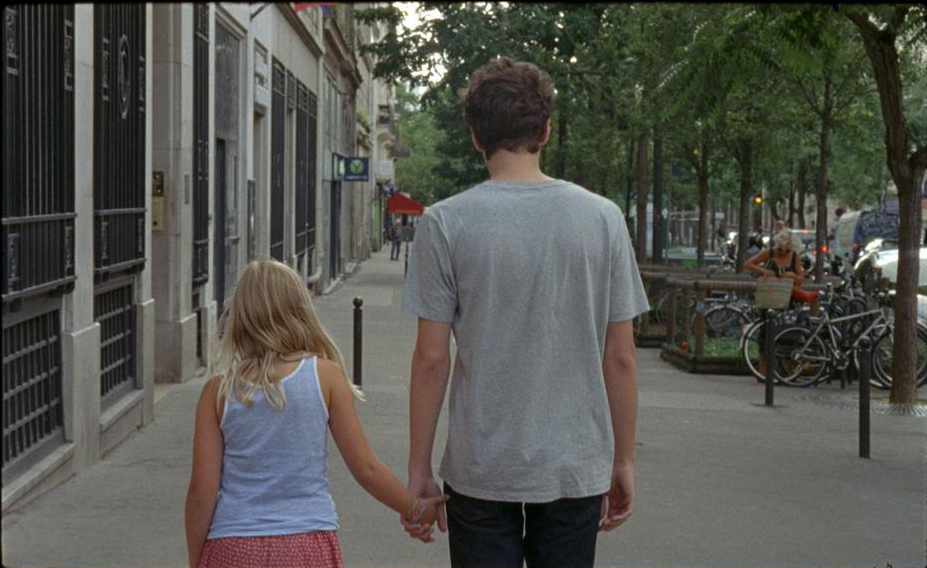
Evan Morgan:
10 for 2019
After putting together multiple Best of the Decade ballots and enduring countless year-end roll calls, I cannot abide another rank ordered catalog of movies, so I’m taking Sean’s open-ended invitation to heart this year and offering a few non-cinematic favorites, chaotically organized. Admittedly, because I am a captive who loves his captor, there are still some films and filmmakers included in this personal sampler platter (please, let’s not call it a list) though it does seem that, with each passing year, literature and music conquer more and more of the mental space that I once greedily stored away for the seventh art. If there was simply less room in my head this year for cinema, well, that was probably for the best. We could all stand to watch a few fewer movies. Then again, I’ve been offered the key that unlocks this dark little room once or twice before, and each time, without fail, I stay put, right where I am.
The Fiction of David Stacton
My regular rendezvous with novelist, historian, poet, and all-time great gay David Derek Stacton were, without doubt, the most rewarding that I had this year. His fiction encompasses an incredible range of topics, periods, and experiences (a small sample: the doomed life of Giovanna d’Aragona, Duchess of Amalfi; Akhetaton’s failed attempts to remake Egyptian state religion; a sexual roundelay at an international film festival circa 1962) but they are united by Stacton’s unusual voice, which is wisecracking and aphoristic, and by the melancholy emotions that they inspire, which Stacton conjures up despite his work’s obvious literary “flaws.” Stacton’s characters are described with cutting wit, but they are stubbornly theoretical; his narratives lurch forward without much development; everything is subordinate to a good turn of phrase. And yet, somehow, each Stacton novel gives birth to a universe—and then, brutally, one epigram at a time, snatches it away. “Not that there will not be a new world, but this is the end of ours. And being selfish, we are concerned with that.” There is also, for a particular kind of reader, the unexpected inkling of recognition: I would challenge anyone of the other persuasion to read a Stacton novel (preferably one that lacks obviously queer content, of which there are many) and not to experience some shock of the familiar. Stacton’s people may often be kings and sovereigns, men who rule over vast swaths of land and who command the most prized levers of power, but they are closeted fantasists all. They thirst after precisely that which society says they cannot have, and, being subject always to the laws of sociological circumstance (for who is the ultimate subject of a society if not its ruler?), they remain forever behind a mask. Their only true dominion is a borderless empire of solitude.
Jean-François Stévenin, in front of the camera, yes, but—more importantly—behind it.
Monsieur singulier
The Cinema of Patricia Mazuy
Gone to earth!
Titanic Rising
No other work of art from 2019 offered me so much comfort amid the general doom. Music for drowning people.
Crying with Mikhaël Hers
I included Amanda on Seattle Screen Scene’s 2018 round-up, so, even if I had some minor reservations, the film clearly clicked for me on a first viewing. It took a revisit this year, however, for me to understand just how deeply it had penetrated my heart. (I wept thrice.) Encountering Hers’s earlier work was crucial: in classic auteurist fashion, I can now list a dozen ideas and images that recur throughout his oeuvre, most of which reach their zenith in Amanda. But I won’t, because if I’m being honest, what really matters to me is that I got to savor the sweet taste of validation. A pet theory is—by my lights, anyways—confirmed: namely, that despite a certain straightness of approach, Hers’s films belong, indisputably, to the Diagonale lineage. Like Paul Vecchiali, Jean-Claude Guiguet, and Marie-Claude Treilhou (whose first film, Simone Barbes or Virtue, gets a cameo in Montparnasse), Hers believes—with a conviction unparalleled in contemporary cinema—that tears are a gift.
Eating with Joseph Wechsberg
Life (and history and culture) is meals.
Black Wings Has My Angel
I do not believe in “Lynchian” as an adjective to describe works made by anyone other than The Man from Another Place, but for once I’m tempted to use it. A complete cosmology of American desire.
Aspern
An infinite mansion is best explored with friends.
A King Alone
Who is it who said, “A king without diversion is a man full of wretchedness?”
Japan’s “Lost Decade”
The 1980s get a bad rap among Japanese film critics. Numerous theses abound, some more compelling than others, but I sense that the implicit idea is, essentially, a version of that old saw about economic prosperity and aesthetic ambition: good times produce bad art. An obvious if undefeatable fallacy, so I won’t bother with a full-throated rebuttal. I’ll just assume, with utmost generosity, that the scholars have simply been watching the wrong movies: this so called “Lost Decade” bears fruit as bountifully as any of the more cherished periods of Japanese film history. Personal favorite Nobuhiko Obayashi had his greatest run from ‘82-’86; Seijun Suzuki returned from television exile with the Taisho Trilogy; Kiyoshi Kurosawa made his debut with a superior screwball porno. And those are the big names. I keep running across little curios that suggest rich veins yet to be mined. There’s Yokohama BJ Blues, for example, a jazzy noir about a singer who moonlights as a P.I. and who—between torchlit performances of ditties that describe too much drinking and too much Hemingway—investigates Yokohama’s gay crime syndicate; or The Lonely Hearts Club Band in September, a biker movie in which a middle-aged, middle-class salaryman exacts violent revenge on a gang of young cruisers. Their crime? Choosing to ride their own road while society barrels forward in a different direction. If, strapped in with the culture at large, we fail to glimpse them as we zoom on by, if we continue to survey cinema from its empty, homogenized center, rather than from its shabbier margins, that’s on us, not the movies.
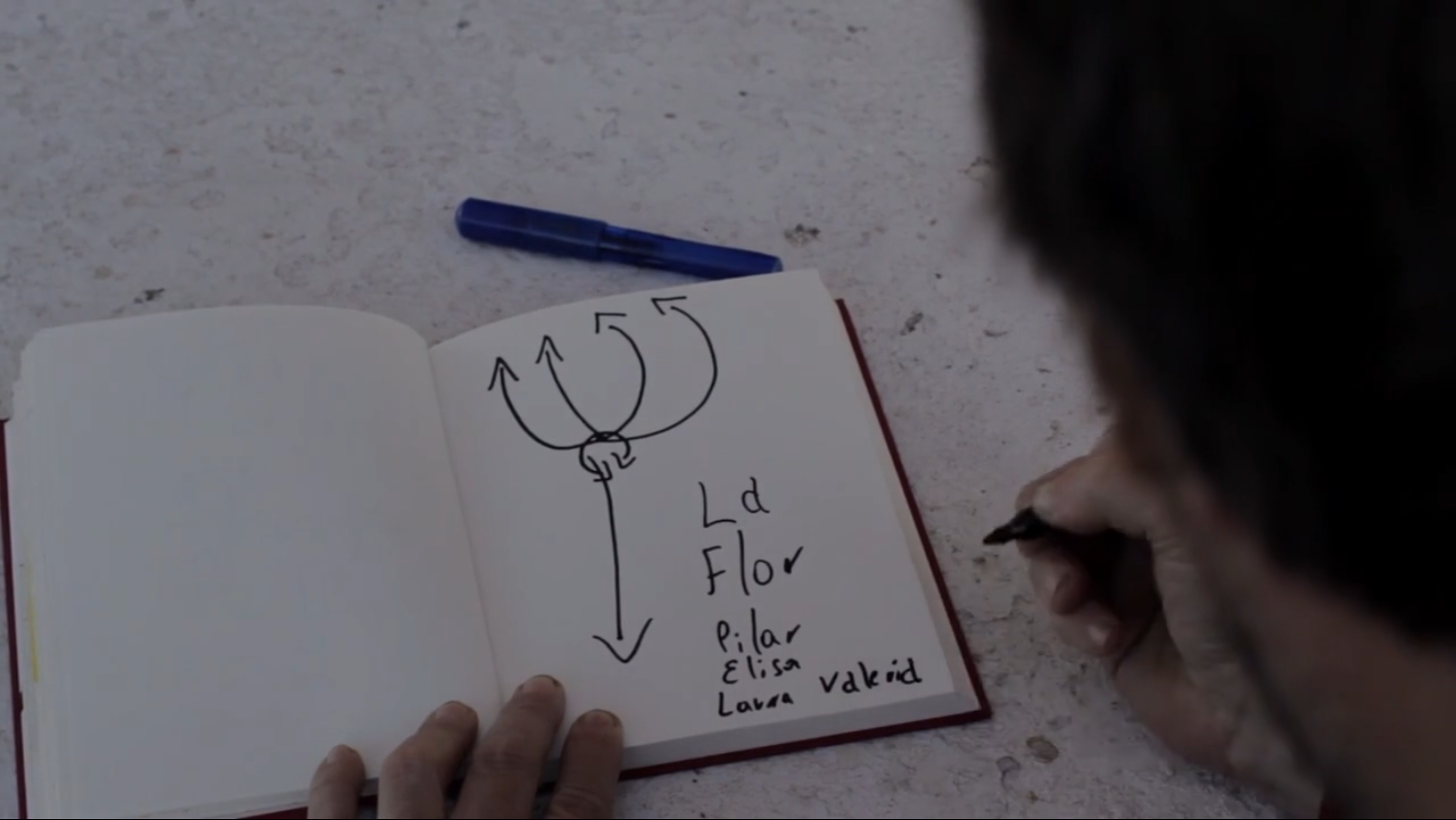
Ryan Swen:
Top 10 2019 Double Features
2019 was an unusually great year for film, both in terms of US releases and in my viewing of new-to-me films. In commemoration of this, I’ve decided to steal Mubi’s annual “Fantasy Double Features” idea (which three fellow Seattle Screen Scene writers have contributed to) and list my 2019 top ten along with ten of my favorite first watches. Most of these are fairly obvious picks, but they’re all eminently great films.
1. La Flor (Mariano Llinás)/Céline and Julie Go Boating (1974, Jacques Rivette)
Two sprawling films co-conceived by their directors and four actresses, openly engaging with the limitless potential of storytelling, viewership, and cinema, exploding barriers one indelible moment and flight of fancy at a time.
2. Asako I & II (Ryüsuke Hamaguchi)/Syndromes and a Century (2006, Apichatpong Weerasethakul)
Sure, there’s the bipartite construction of each film, but registering even more strongly is the subtle interplay between the city and the countryside in each, and how they inform and shape the sense of romance on display. Their senses of rapture resonate together, even if one’s height is at the beginning and the other’s at the close.
3. Long Day’s Journey Into Night (Bi Gan)/India Song (1975, Marguerite Duras)
Two of the most intoxicating atmospheres put to film, using a surfeit of formal daring and judiciously deployed star presence to encapsulate worlds and histories of longing and loss.
4. The Irishman (Martin Scorsese)/Stray Dogs (2013, Tsai Ming-liang)
Decay of the body, the landscape, and the nation, captured in a way only digital technology and the talents of some of the most masterful directors and actors alive can do.
5. Transit (Christian Petzold)/The Testament of Dr. Mabuse (1933, Fritz Lang)
Two Germanic masters operating at the height of their powers, daringly depicting the fascist forces thriving under strife and unrest and the romantic agents desperately trying to resist and survive.
6. Ash Is Purest White (Jia Zhangke)/A City of Sadness (1989, Hou Hsiao-hsien)
Two of the greatest modern directors cast a glance back at the weight of national change, locating unrest in the quotidian and in the absences that accumulate as the years go by.
7. Grass (Hong Sang-soo)/Certified Copy (2010, Abbas Kiarostami)
Some of the most elusive films by enormously elusive filmmakers, utilizing familiar forms and actors in entirely unfamiliar and emotionally/relationally revelatory ways.
8. Parasite (Bong Joon-ho)/Mahjong (1996, Edward Yang)
In a certain sense Bong’s airtight constructions and Yang’s freewheeling approach are at odds, but both capture the hustle and disappointments of capitalism, the transactional nature of interpersonal interactions.
9. High Life (Claire Denis)/The End of Evangelion (1997, Hideaki Anno)
This really should include the entirety of Neon Genesis Evangelion, one of the most significant experiences I had with any media object this year; these are works moving between coldness and viscera, anguish and remove, operating with frightening range and abandon.
10. Her Smell (Alex Ross Perry)/The Mother and the Whore (1973, Jean Eustache)
Though one of Perry’s earlier films would be an even better fit; there’s no redemption for Eustache’s characters, just a sense of total exhaustion. But there’s plenty of that in Perry’s latest, as maximalist and overtly sensorial as Eustache’s approach is minimalist and documentarian.

Melissa Tamminga:
In the midst of 2019 year-end (and decade-end) lists, I find myself reflecting more on viewing experiences, often viewing experiences I’ve shared with others, more than specific 2019 films I loved. It’s the moments of film-related insight, or inspiration, or emotion, and, especially, personal connection, I think, that will keep me going this new year, in a world that feels increasingly lost and chaotic, in need of beauty and of reminders of humanity.
In no particular order, just a few of these moments:
–Re-watching Pather Panchali and seeing and feeling, as I hadn’t before, the heartbreaking beauty contained in waterbugs and wind-whipped lily pads, a world contained in a series of images and feeling again that thing, that knowledge you can’t know but you have to feel, the thing that is cinema
–The rapturous reception of Godard’s Breathless by one particular film history student — though an avid and voracious consumer of film, she’d never seen anything like Breathless and her joy in it, whatever my jaded reflections on the New Wave, particularly with regard to women, reminded me what is so invigorating about the New Wave, perhaps particularly to youthful film lovers
–Watching The Florida Project with a group of students who’d never seen it nor heard of it but, as a group, were more moved by it than by any film I’ve ever shown to a class, and who managed to sweep away any reservations I had about the film myself; their wide-ranging discussion afterwards about social justice and the need for marginalized perspectives, reminded me just how provocative a medium film is and how grateful I am for it
–Discussing If Beale Street Could Talk with a student who was doing an independent study and landing in our discussion on the point in the film where the camera seems to hold its breath, where it stops time, contains an overwhelming emotion that cannot be done with words — in remembering the scene together, all we could do was look at each other and say nothing for a long moment
–After a screening of Stories We Tell, one student walking up to me in tears, so moved was she by the film, and then we both just cried together
–Watching Wadjda with my 10-year old, who loved the way Wadjda colored her shoes with a black marker, a moment of two girls and a simple, shared humanity
–The stillness of the rapt silence when my film history students watched Killer of Sheep and the way they struggled to articulate themselves about what they’d seen and been so moved by afterwards
–Watching Eighth Grade with my teen daughters and seeing the way film can reach across distances and bring validation and healing in ways that perhaps no other medium can do
–My daughters all falling in love with Agnès Varda while watching Faces Places
–Experiencing, yet again, the truth that film moves others in ways it does not always move me, in this case, after years of earnestly trying to get my daughters to love the Star Wars universe as I do, it was, ironically, the deeply flawed Rise of Skywalker (and, let’s face it, the hot blood of the Kylo Ren and Rey dynamic) that finally got them to see the light, and, at their bidding, we’ve re-watched the original Star Wars films as a family, and now they are pretending they’ve always loved the series



